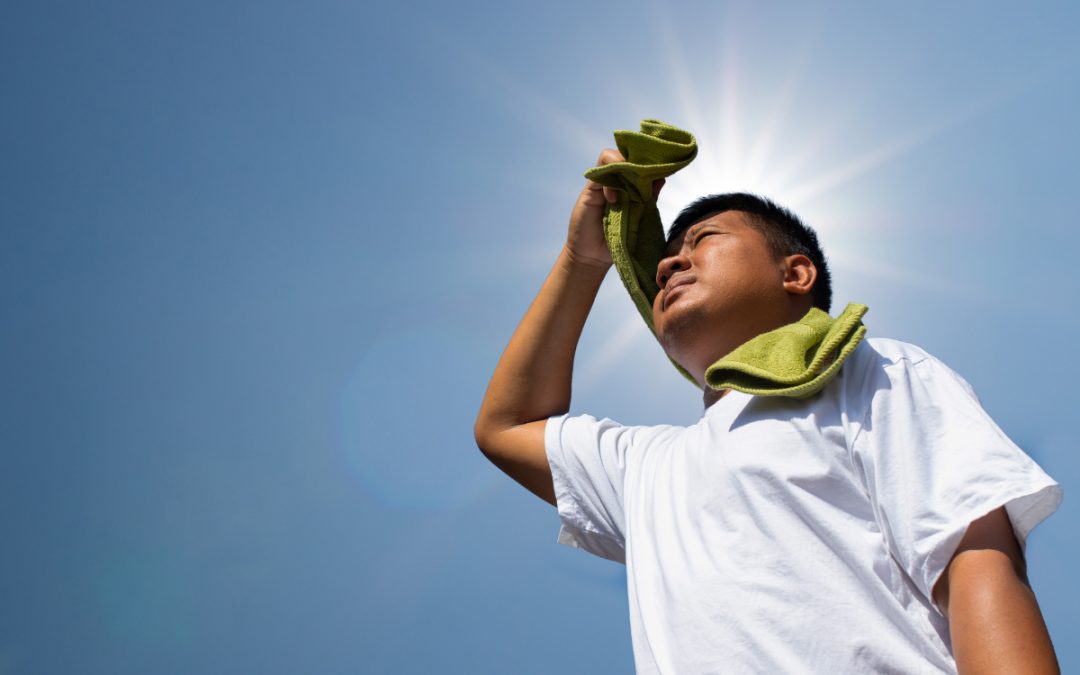
Am I Dehydrated? Recognizing and Managing Dehydration
Our bodies function at their best when they are properly hydrated, and good hydration is particularly important as our activities take us outdoors in the warmer months. If we don’t drink enough fluids, dehydration can creep in, causing a range of unpleasant symptoms. Feeling a bit ‘off’ after being out in the sun could point to dehydration. Recognizing the signs of dehydration can help you stay safe this summer as you participate in all your favorite outdoor adventures.
What Causes Dehydration?
Dehydration causes our cells to shrivel up and stop functioning properly and occurs when our bodies lose more fluids than they take in. Maintaining the proper balance between body salts and water is what prevents dehydration. Some common causes include:
- Not drinking enough water or fluids
- Excessive sweating from exercise or hot weather
- Vomiting or diarrhea
- Certain medical conditions
Signs You Might Be Dehydrated
Dehydration can happen quickly, especially during hot weather and intense physical activity. Dehydration can cause mild discomfort or severe health issues requiring immediate medical intervention. Your body gives several warning signs that you need more fluids. Here are some important things to watch out for:
Thirst
The most obvious sign of dehydration is feeling thirsty which is your body’s way of signaling that it needs more fluids to maintain proper support for vital functions. If you find yourself reaching for water more often than usual, your body senses a need and it can tell if the need for fluids has been met within a minute of you taking a drink. Thirst kicks in once we have lost about 2% of our bodily fluids. As we age, our sensitivity to thirst can lessen, so it’s a good idea to keep water handy and sip often.
Fatigue and Dizziness
When you’re dehydrated, your blood volume decreases, which can cause a drop in blood pressure and reduce the flow of blood and oxygen to your brain. This can make you feel tired, lightheaded, and unsteady.
Headaches
Dehydration can trigger headaches or make existing ones worse. If you’re experiencing new or frequent headaches, try increasing your fluid intake and see if that helps.
Dry Mouth and Dry Skin
A dry mouth and patches of rough, scaly, itchy skin dry skin can point to dehydration. Skin may also appear dull and more wrinkled or aged when dehydrated and the eyes can take on a sunken look.
The Pinch Test:
Pinch some skin between your fingers and hold for a few seconds. You can use the skin on the back of your hand.
- If it snaps back immediately, you probably aren’t dehydrated.
- If it takes several seconds to resume its original position, you are likely dehydrated.
Muscle Cramps
Severe dehydration can cause your muscles to cramp up more easily, especially during exercise or physical activity. This can be accompanied by muscle weakness.
Impaired Physical Performance
Fatigued muscles or muscles that tire more quickly causing decreased strength and endurance can signal dehydration.
Cognitive Function Impairment
Lack of proper hydration can impair your ability to concentrate, make decisions, and remember things clearly. Just a 2% drop in brain hydration can cause short-term memory issues. Confusion, irritability, and difficulty focusing can soon follow.
Staying Hydrated: Tips and Tricks
To prevent dehydration and its unpleasant symptoms, try incorporating these strategies into your daily routine:
- Drink water consistently throughout the day, even when you’re not feeling thirsty.
- Carry a reusable water bottle with you as a visual reminder to keep sipping.
- Eat hydrating foods like fruits and vegetables, which can contribute up to 20% of your daily fluid intake.
- Replace electrolytes lost through sweating by drinking sports drinks or coconut water during or after intense exercise.
- Limit alcohol, which can act as a diuretic and promote fluid loss.
Many associate darker urine with dehydration, but darker urine can just be the result of the body holding onto urine longer to maintain a better water/sodium balance. The degree of thirst and blood measurements are the best ways to know if someone is dehydrated.
When to Seek Medical Attention
In most cases, dehydration can be resolved by increasing your fluid intake. Seek immediate medical care for these severe symptoms:
- Extreme thirst
- Dizziness
- Rapid heartbeat
- Confusion
Severe dehydration can be dangerous and may require intravenous fluids or other medical interventions. Come see us at AFC Urgent Care Hixson for a quick same-day appointment. Our medical experts can get you sorted out more quickly than a trip to an emergency room filled with patients requiring more critical medical care.
Remember, staying hydrated is key to keeping your body functioning at its best and avoiding the uncomfortable and potentially dangerous effects of dehydration. By recognizing the signs of dehydration and taking proactive steps to hydrate, you can keep your body functioning at its best and avoid the unpleasant consequences of dehydration. If you notice any signs of dehydration or have concerns about your hydration levels, don’t hesitate to get professional care and advice.